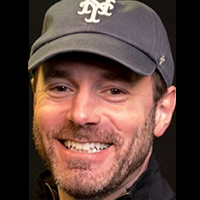 By Stephen Feldman – Patient
By Stephen Feldman – Patient
If the CLL Society’s credo – Smart Patients Get Smart Care – is true, then I must be brilliant! OK, that’s just pretend immodesty. Or is it? 😉
The earth-rattling announcement that “you have leukemia,” followed by the instantaneous release of cortisol filling every capillary in your body over the shock that something that’s not supposed to happen has just happened — to me! — is 6 years past. By now, I know the CLL landscape pretty well.
Following my diagnosis in 2014, deliberate effort seeded the ground for good luck and I quickly found myself in a network of people who are indeed smart – in fact, very smart about CLL. It was more than happenstance that delivered me to a complete remission by the end of 2017. Most notably through my involvement with the CLL Society, I “smart-patient-ed” my way to get the best care available (that I could afford*).
When asked to write an essay for publication on my experience of having achieved undetectable minimal residual disease status (U-MRD), I confess it proved something of a challenge. It’s not something I actively think about anymore. A curiously casual indifference has filled the space once occupied by anxiety!
Though I thought my prospects excellent, I don’t recall feeling consumed by an absolute need to get to complete remission – and U-MRD. It should be noted that an absence of U-MRD for CLL patients is by no means ominous provided that a healthy amount of remission has been achieved and disease progression has halted. But it’s certainly nice to get over the goal line and, for a time at least (hopefully many years), spike the football in the end zone of complete remission.
Arriving at U-MRD is perhaps its own luxury: it allows one the ability to place their CLL on a far backburner. You’re more CLL “survivor” than patient. The reality, though, is that presently there is no absolute cure for CLL, so I’m once again back in the land of “watch and wait.” But it’s a far milder form this time. I am neither watching twitchily nor waiting nervously. It’s not “watch and worry” anymore.
Where does this sense of ease and assurance come from? While I’m only two and a half years into my remission, there are no traces of any of the previous CLL symptoms such as the fatigue and night sweats that I had experienced. The absence of these symptoms tells the swagger center in my brain that I’m “cured” because I feel like I am. Emerging data suggesting that CLL patients who achieve U-MRD are likely to have robust, long-lasting remissions, reinforces this confidence. And wow! my most recent blood work is the envy of even myself. Though my Ig levels remain depressed, as they do for almost all CLLers, recurring infections have not been an issue for me.
My takeaway: should the future serve a cold dish of comeuppance to my swagger center, this is what I’ll do. I’ll handle it with a knowing confidence that the past is prologue. I’ll knock my CLL back down with even superior treatment choices.
Lest anyone be tempted to think all this sounds a bit too smug and over-confident, as I like to say to the discomfort of others (offered in full but friendly gallows humor), “Now I can go back to just being paralyzed.” You see, I sustained a spinal cord injury resulting in paraplegia 36 years ago. There’s no cure for that either, but I kind of feel like I am anyway.
You get used to things. We all adapt.
* I was originally invited to participate in a clinical trial of ibrutinib and venetoclax. My insurance company did not approve my portion of the costs involved, so I declined. In its place, my oncologist suggested a combination treatment of ibrutinib and 12 cycles of obinutuzumab, which, remarkably, was approved.
Stephen Feldman is a former Upper West Side New Yorker presently in the CLL protection program in Los Angeles. He is a graduate of Hunter College (B.A. Biology) and Fordham University (MSEd. Counseling Psychology). Stephen is the group facilitator for the CLL Society’s Los Angeles support group at the City of Hope Hospital in Duarte, CA. Contact welcomed: [email protected]
Originally published in The CLL Society Tribune MRD Special Edition.

















